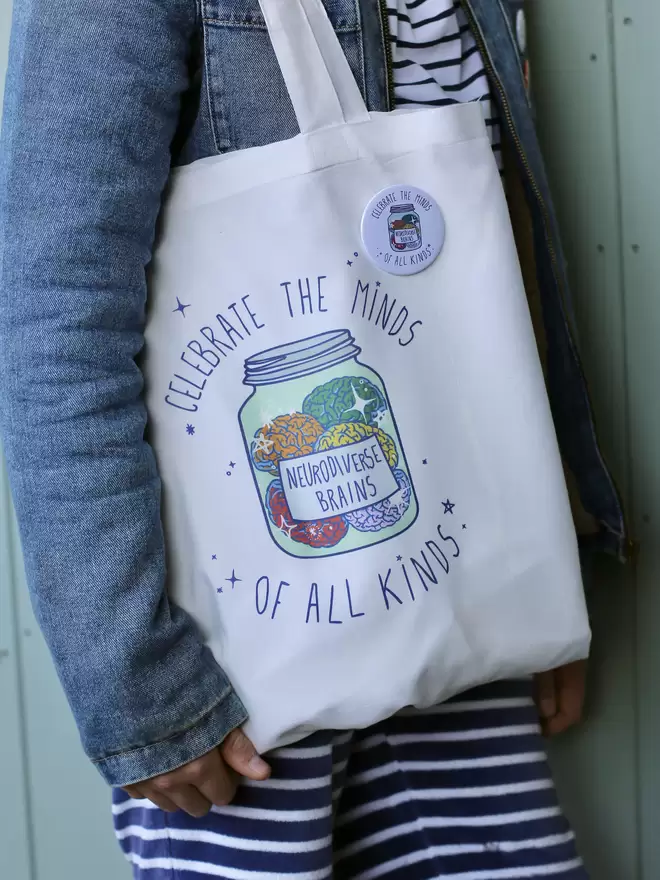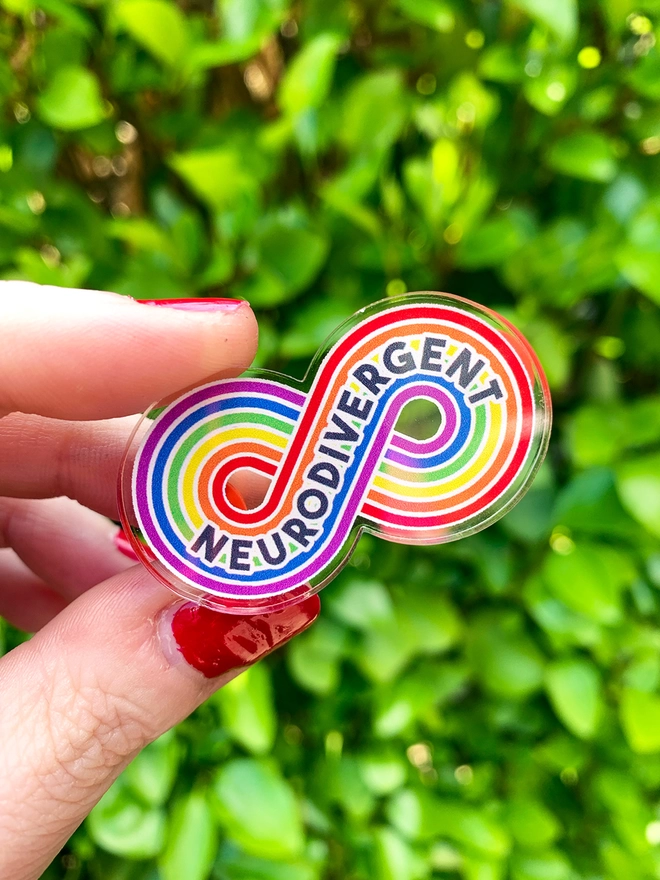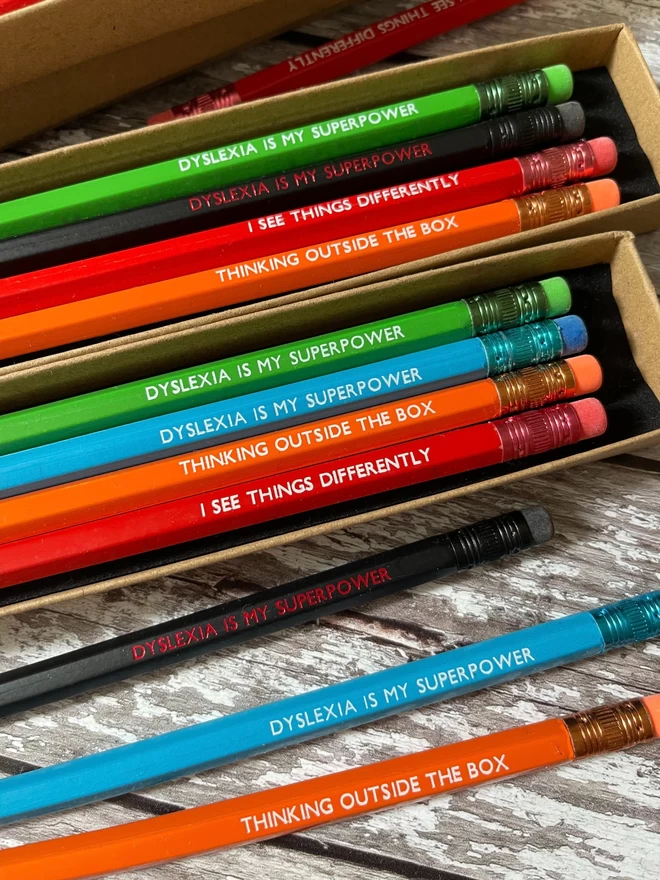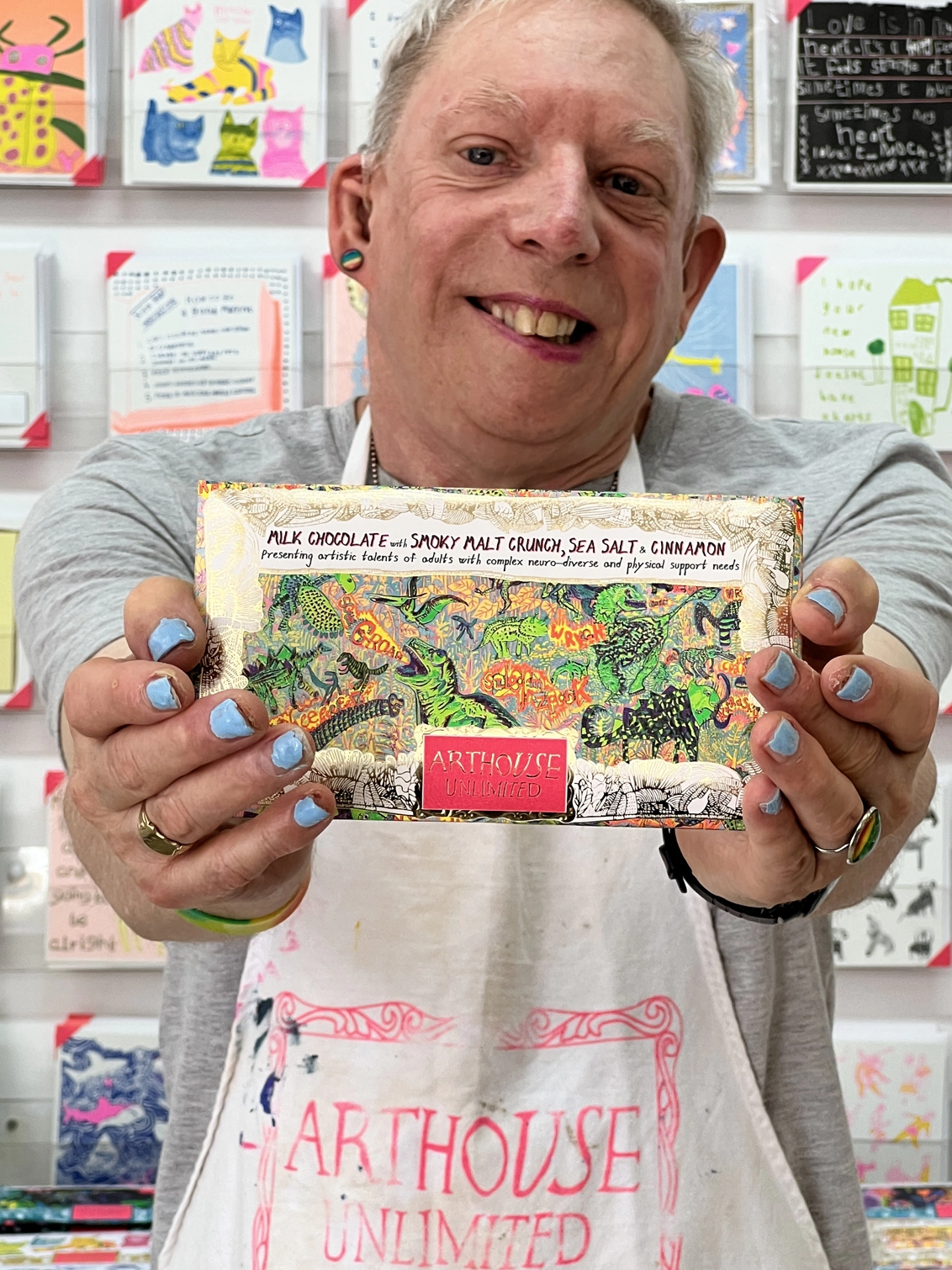
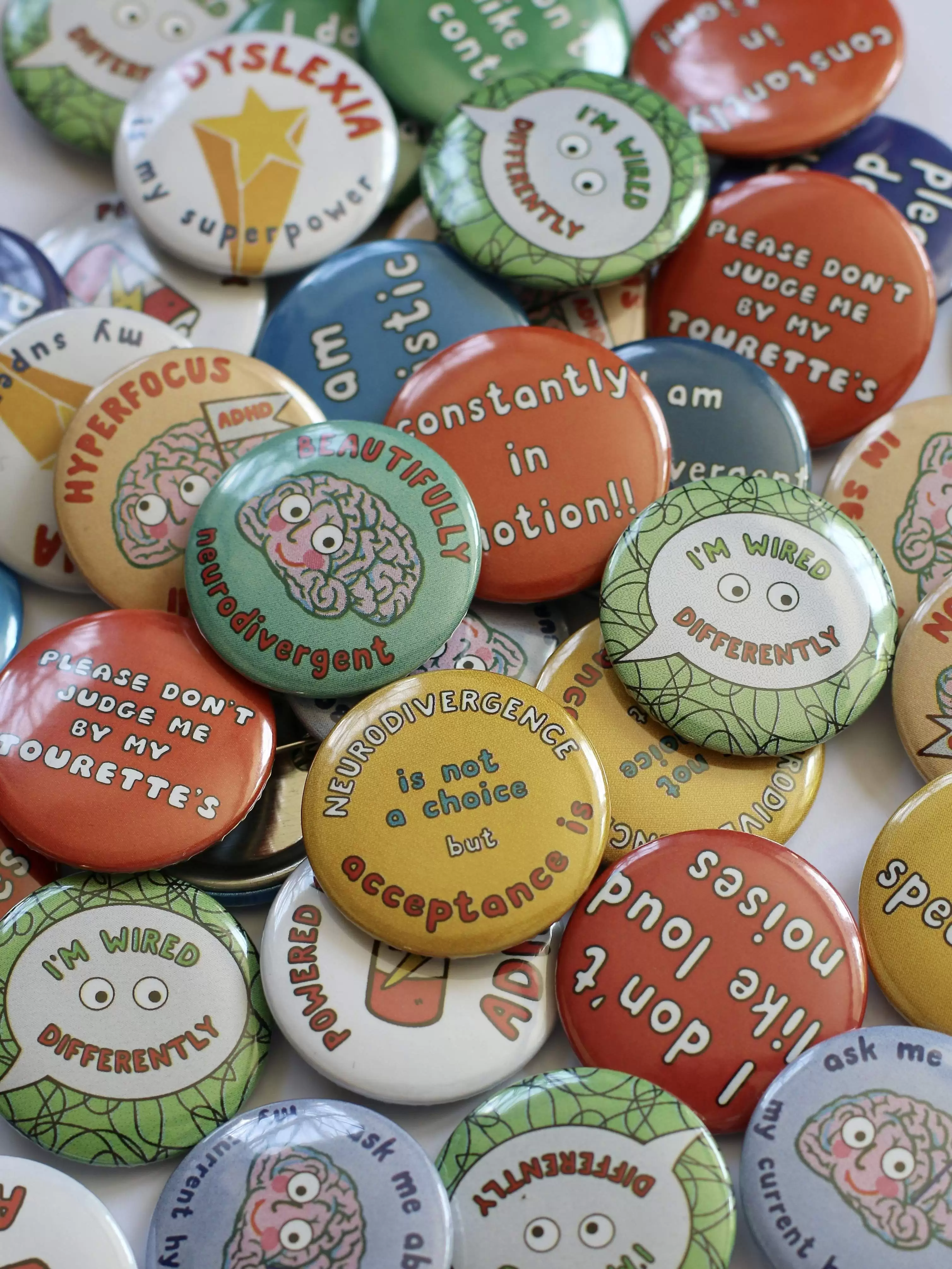
The superpower of neurodivergence: changing retail in wonderful ways
UPDATED 28TH SEPTEMBER 2023
Neurodivergent founders are positively impacting retail. Discover how this can be a real benefit to shoppers.
Neurodivergent founders and makers: bringing creativity back to retail
Something exciting is happening in retail. Slowly but surely, more and more neurodivergent entrepreneurs are starting businesses or working with neurodivergent makers — and we are beginning to see the transformative power that this is having on the retail industry, our community and even our shopping.
From irrepressible creative thinking leading to more innovative products and experiences for shoppers, to evolving the way people choose to work, the world really seems to be changing for the better.
What is neurodiversity and what are examples of neurodivergence?
@livedexperienceeducator explains that neurodiversity is, "The diversity of human minds; no mind is the same; there is no one standard mind or brain." Neurodiverse is the term used to describe, "A group of people whose minds all differ." And neurodivergent is an identity term used to describe, "A person who functions in a way that diverges from neuronormativity". The Brain Charity explains this further by saying that: “Each person has a brain that is unique to them; no two brains are quite alike. For over a million people in the UK, these differences mean they are diagnosed with autism, ADHD, dyslexia, dyspraxia or other neurological conditions.”¹
This diversity of thinking — the neurodiversity — allows for a spectrum of strengths, talents and cognitive abilities that enrich our society — and shopping. Would we ever have had the soulful words of NBP (Notes By Piper)? Or the beautifully packaged gifts by the artists at ARTHOUSE Unlimited if all products were created by neuronormative founders? They’re sharing ways for us to connect with our loved ones that we’ve never seen before.

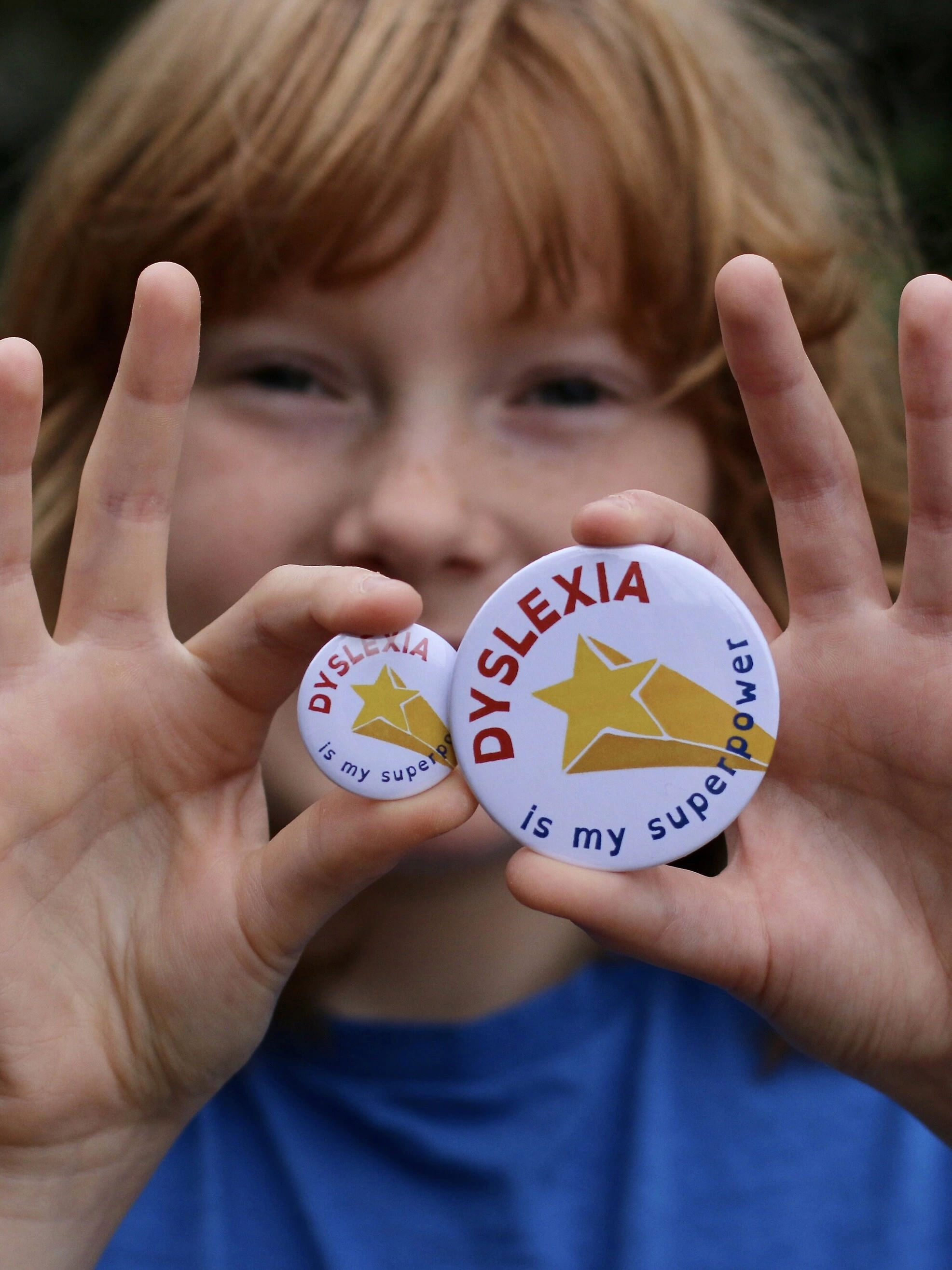
Set Of 2 badges To Celebrate Dyslexia
Is neurodivergence a superpower? Why neurodiversity can be good for business
According to ADHD Aware, around 15% of the population are thought to be neurodivergent.² Furthermore, DIY Genius reported that an estimated 29% of entrepreneurs have ADHD and 35% are dyslexic.³ Perhaps it’s not surprising then that Sir Richard Branson, Jo Malone CBE, Johnnie Boden CBE — and our very own founder Holly Tucker MBE — are all neurodivergent (and their Conversations of Inspiration podcast episodes really are a must listen on this subject). Research shows that neurodivergent founders often outperform neurotypical founders.⁴ But why is that?
The benefits of neurodivergent entrepreneurs: the pros of neurodiversity in retail
For entrepreneurs, neurodivergence offers a unique advantage, which in turn, provides shoppers with a richer experience (it’s why you can shop from neurodivergent founders and makers on our site — and you’ll want to because the products are amazing!). Founders with neurodivergent traits often show…
- Exceptional problem-solving skills, heightened creativity and an ability to think outside the box. This thinking coupled with resilience is brilliant for innovation, sparking groundbreaking ideas and creative solutions, as well as spotting gaps in the market, and excelling at different aspects of the customer experience from marketing to what happens on site.
- Unwavering focus and persistence. So they often have the tenacity to see an idea through, no matter how brave or difficult it might be.
- Passion and skill. Many neurodivergent entrepreneurs find themselves deeply immersed in their work, which often results in unparalleled expertise and mastery. This focused dedication can lead to the creation of niche products or services — gold dust to us as customers.
- The ability to create brilliantly unique products and a more rounded market. As well as this creative thinking leading to newness, you’re more likely to get inclusive products for a broader range of people that tap into what it feels like to be considered ‘different’.
Neurodivergent founders: how to start your own business
If you’re a neurodivergent thinker and want to start your own business or work for a small business, there are many advantages. You’re more likely to be able to work in your own way and your contribution to retail will likely be invaluable to many. Plus you could see what you are capable of without the usual societal constraints or neuronormativity coming into it.
Jo Malone CBE: tips from a successful entrepreneur with dyslexia
In Jo Malone CBE's Conversations of Inspiration podcast episode, she explained how she has severe dyslexia and left school at 13. She told us that you need to trust your instincts and find your own way of doing things. For example, if you feel you need to do a business plan, Jo recommends drawing it rather than writing it if you find that easier, or getting someone else to help with the numbers. Just show your passion and don’t give up.
In an interview with the Evening Standard, she also said, “Many entrepreneurs, including me, are dyslexic. Dyslexia makes us creative. We’ve learned how to see around walls, climb ladders and spot the potential in something that others don’t. We struggle in some ways but that is a good thing in business. If everything came naturally and easily, we wouldn’t build ‘business muscle’ — that strength you need to succeed… Ultimately, be proud, as I am, to be one of the thousands of SMEs who have had the passion, courage and tenacity to start their own business, create employment, help the economy and build for our future.” Visionary entrepreneurs like Jo are blazing a trail for other neurodivergent artists and founders out there, and our retail experience is certainly becoming all the richer for it. In fact, they are not just transforming shopping in the UK, but inspiring a more empathetic, inclusive and innovative nation — and that's pretty exciting.
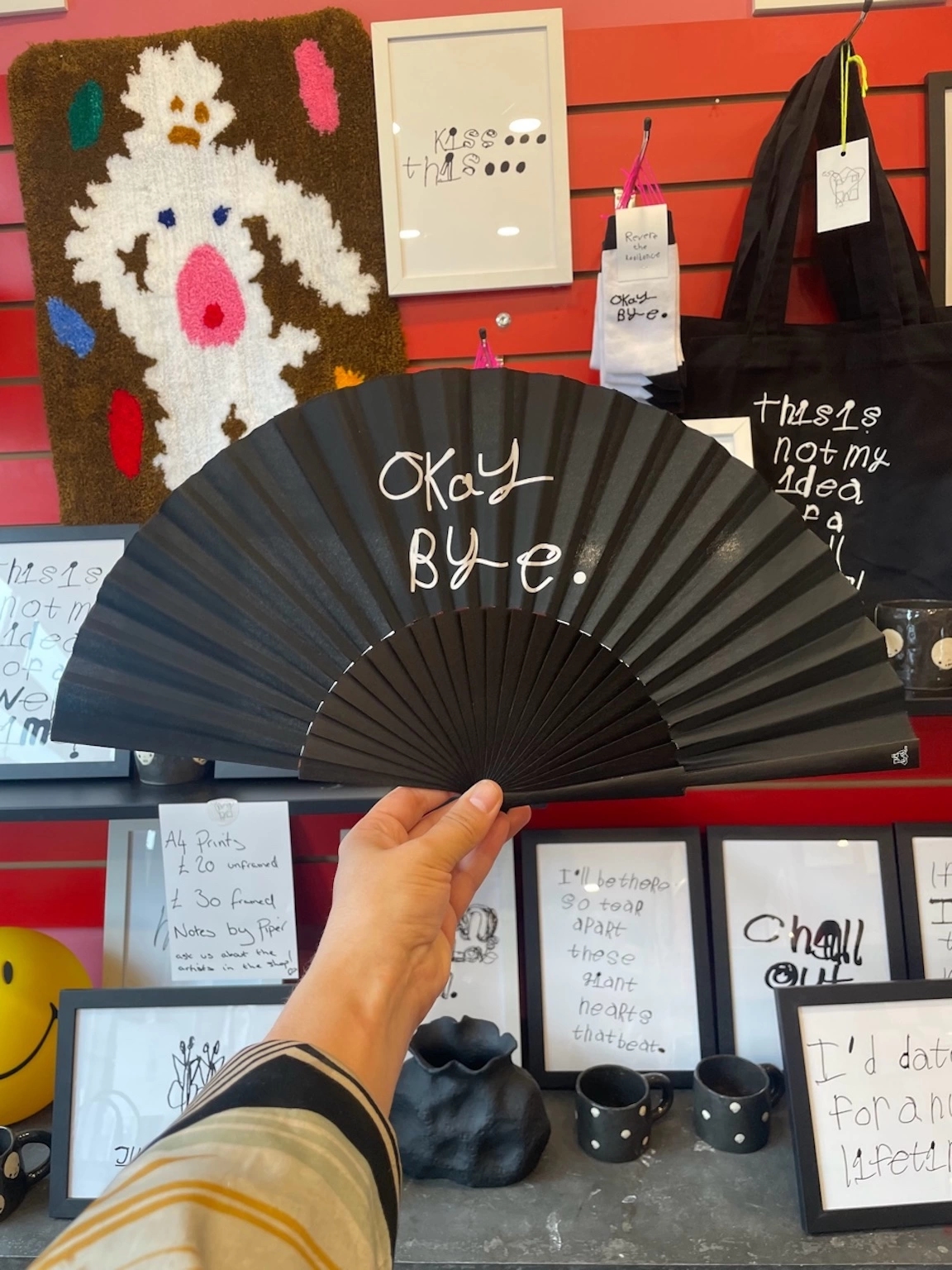
'Okay Bye' Fan
More inspiration for you

Why is diversity in toys important? The power of representation
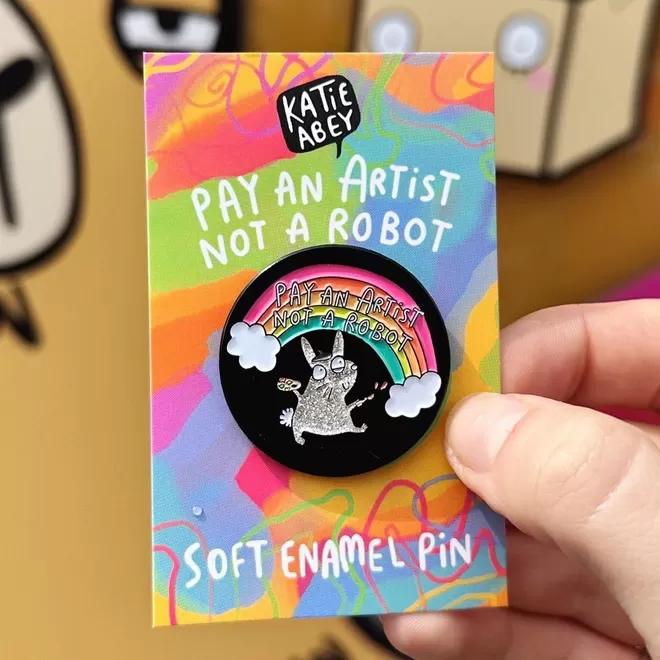
Celebrating the beauty of handmade: Why craftsmanship beats AI
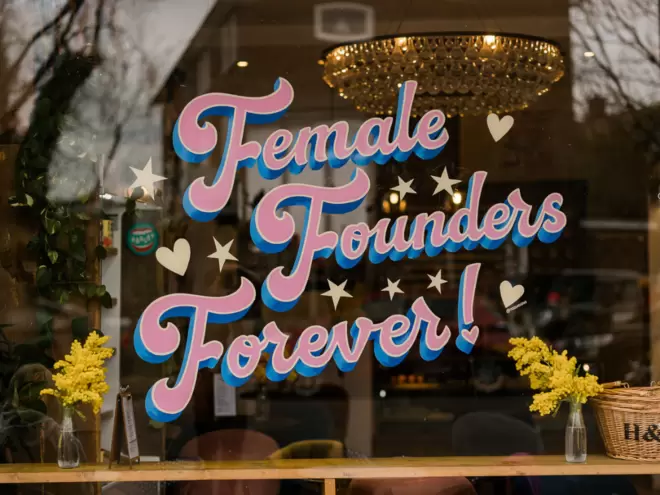
Supporting female founders and the true difference it makes
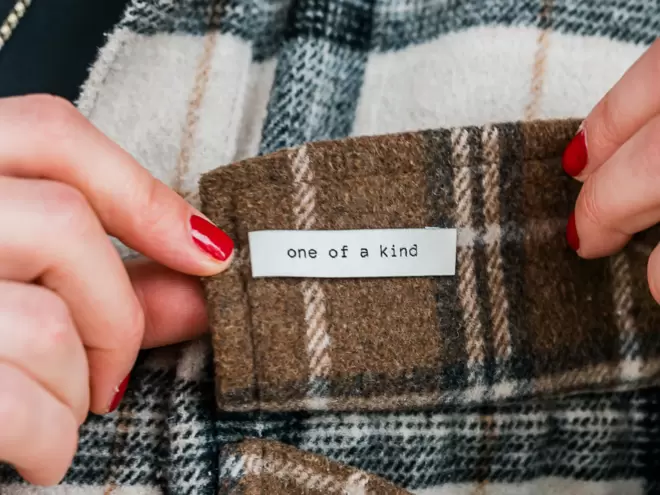
Labelling people: how does it help if you’re a conscious consumer?
Be the first to know
Sign up to our emails for brand new small business magic and inspiration. And if you create an account, you’ll also get exclusive product drops, discounts and more from Club Holly & Co, too.

